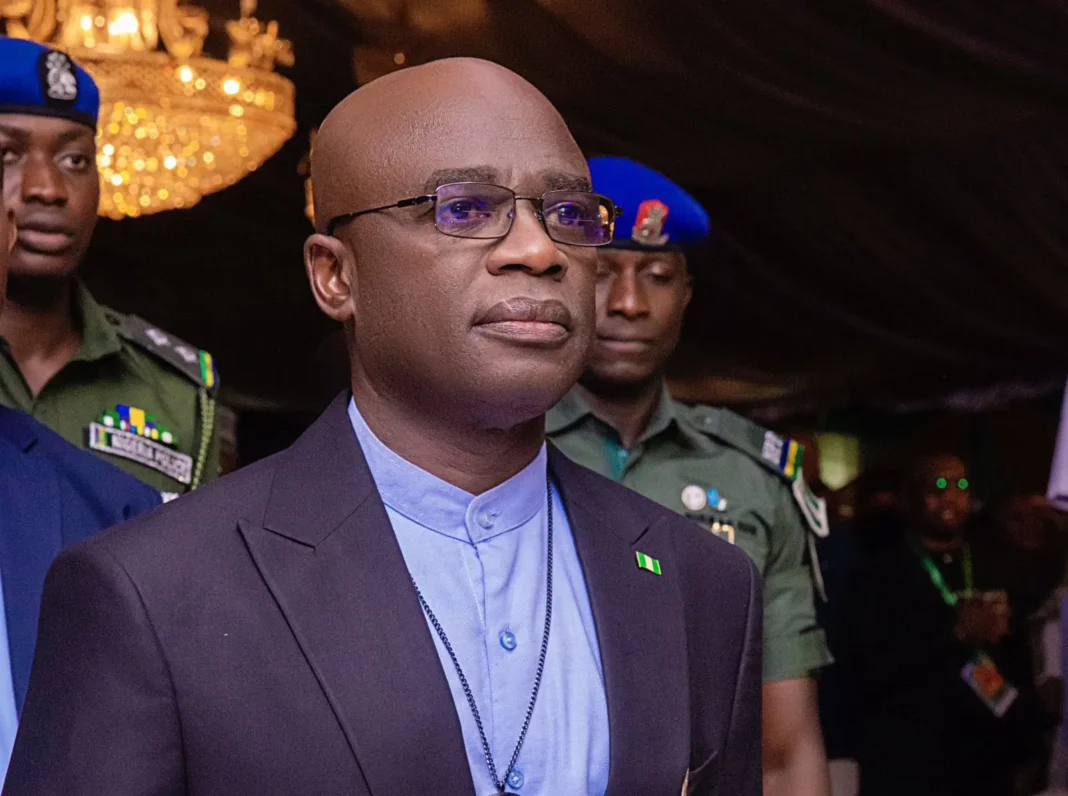Benue Crisis: Why Justice, Not Power, Must Decide Ornguga’s Fate
By Headlinenews.news Analysis Desk
The drama at the Benue State House of Assembly over the rejection of Prof. Yangien Ornguga, a lecturer at Benue State University (BSU), for a commissioner position has laid bare the troubling intersection of politics, traditional authority, and governance in Nigeria.

On the surface, the House’s decision appears straightforward: a nominee with four petitions — three from former students and one from his community- was rejected on grounds of misconduct, vindictiveness, and intimidation. Beneath the surface, however, lies a political storm — a Governor angry at the legislature’s independence, a revered monarch whose brother was denied office, and a Speaker forced to resign for simply allowing the people’s representatives to voice their disapproval.

The Allegations Against Ornguga
Among the petitions were credible, verifiable complaints from students. One particular case stands out: a student allegedly failed unjustly by Prof. Ornguga had his grade upgraded from F to B by an independent review panel. Such a reversal not only confirmed the unfairness of the initial grade but also raises questions about integrity, fairness, and the abuse of authority.

Other complaints point to a pattern of intimidation and vindictive behavior — behavior unbecoming of anyone entrusted with a public office meant to serve, not to oppress.
Legislative Independence Under Threat
Speaker Aondona Dajoh, who presided over the rejection, was forced to resign within days. In his place, Hon. Alfred Berger Ermberga, ironically one of the suspended members allegedly plotting against Dajoh, was sworn in. Analysts see this as a dangerous signal that legislative independence has been sacrificed on the altar of executive and traditional influence.

Political commentator Ismail Omipidan noted: “Dajoh was courageous in screening the nominees. But I knew the rejection of the younger brother of the Tor Tiv, Yangien Ornguga, would trigger crisis… lawmakers, owing to the deluge of petitions, found him unworthy. Unfortunately, this may have infuriated the governor and the Tor Tiv.”
If true, this is a troubling precedent: public institutions bowing not to merit or justice, but to power.
Historical & Comparative Context
Nigeria’s democracy is still haunted by its long history of executive dominance over the legislature. From the 1960s crises in Western Nigeria’s Parliament to more recent impeachments engineered by state governors, assemblies have often been treated as extensions of executive will.

But globally, strong democracies thrive where legislatures stand firm. In the U.S., President Richard Nixon resigned under congressional pressure during Watergate. In South Africa, Jacob Zuma was forced to resign when parliamentarians and courts held him accountable. In Kenya, judges overturned an election in 2017 — a powerful reminder that institutions, not personalities, must prevail.
Nigeria, too, must learn this lesson. As UN Secretary-General Kofi Annan once said: “Good governance is perhaps the single most important factor in eradicating poverty and promoting development.” Allowing compromised individuals to hold office undermines governance at its roots.

Why Justice Must Prevail
1. Accountability to Citizens: The petitions came from ordinary Nigerians — students and community members. Ignoring them is effectively silencing the people.
2. Rule of Law: Allowing Prof. Ornguga back into consideration despite unresolved allegations would reward impunity and erode trust in government.
3. Democratic Credibility: The House’s rejection should be respected as the voice of the people. To override it would be to mock democracy itself.
4. Youth Confidence: In a state where students already feel oppressed, endorsing such a nominee would confirm their belief that justice does not exist for the powerless.

The Call to Action
Nigeria must do things correctly. The allegations against Prof. Ornguga must not be swept under the carpet simply because of his family ties. In fact, his relationship with the Tor Tiv makes it even more important to prove that no one is above accountability.

The Benue State Government and Governor Hyacinth Alia have a chance to demonstrate true leadership by respecting the House’s decision and prioritizing justice over sentiment. As Nelson Mandela once said: “Courage is not the absence of fear — it’s inspiring others to move beyond it.”
The world is watching. The people of Benue are watching. The message must be clear: in Nigeria’s democracy, power yields to justice, not the other way round.

Headlinenews.news Special Investigative Report.





